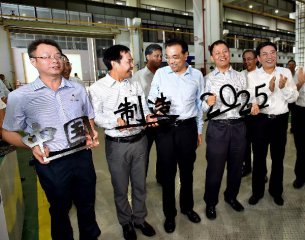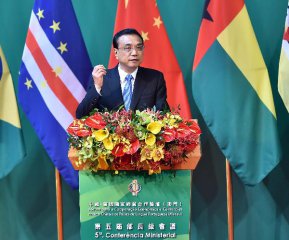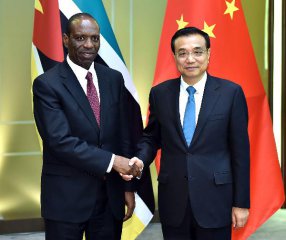
China will make more efforts to streamline administration through more power delegation and fewer certification and evaluation requirements, and will soon issue its first guideline for market supervision and regulation to make its business environment more inviting.
The decision was announced during the State Council's executive meeting on Wednesday chaired by Premier Li Keqiang.
Local government will take over approval of 53 administrative items, mainly covering business activities such as qualification certificates for private schools and business permits for cotton processing to make business registration more convenient.
Delegation of 14 items will require further approval by the National People's Congress Standing Committee as law amendments are needed. Since 2013, a total of 230 administration items have been delegated to local governments.
Another 20 agency-provided evaluation and certificate requirements will also be dropped, including areas such as railway facility construction and qualifications for legal professionals.
"Our reform in streamlining administration for leaner and more effective government is stepping into a crucial stage," Li stressed. "All departments should seriously implement (the decisions), and make sure to drop institutional costs for enterprises."
"The key in transforming government function is striking a balance between the government and the market, and our goal is to effectively unleash and grow productivity potential," he added."There is no end to it, and we shall grasp the key link of reform to deliver results."
It was also decided during Wednesday's meeting that China will soon issue its first guideline for market supervision for a more open, better regulated and attractive business environment.
The guideline will be effective through China's 13th Five-Year Plan period (2016-2020). The new guideline is geared toward a market environment offering easier market access, a platform for fair competition, and greater consumer safety.
The measures to be adopted include: further streamlining of business registration; negative list-based market access with a focus on compliance oversight; a level playing field for non-local businesses with fair competition and bans on discretionary charges or subsidiaries; and highlighting regulation and enforcement of food and drug safety as well as other fields that are crucial to public safety and security.
The government also needs to improve regulatory innovation through the Internet Plus Mode and big data, among other means. "Supervision must be carried out in a lawful and well-regulated manner so that companies will not be subjected to extra burdens," Li stressed.
He pointed out that while the country is working hard to phase out excess industrial capacity, institutional hurdles should be reduced to allow room for new economic driving forces.
"We should work hard to advance in transforming the role of the government. A more dynamic market is the cornerstone for development," Li said.























Latest comments